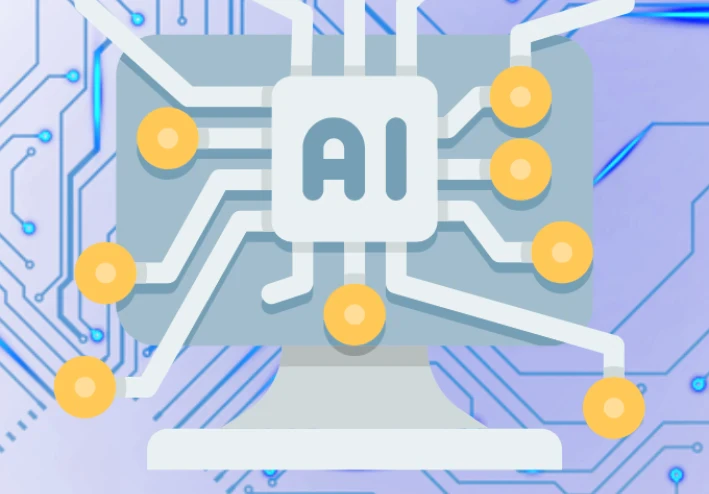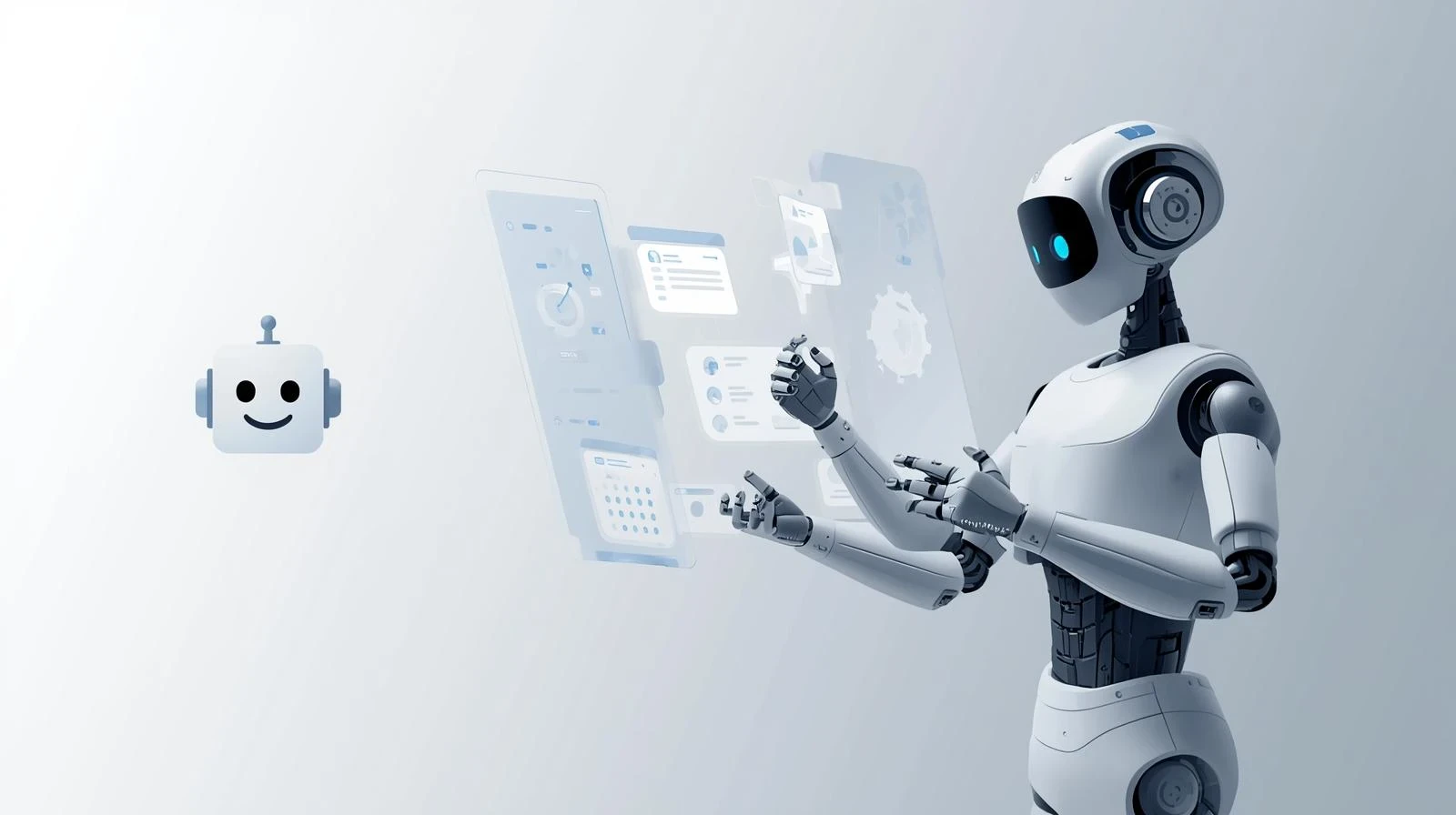
Artificial Intelligence in 2025: The Top Trends Reshaping Business & Society
introduction
AI in 2025: From Hype to Integrated Reality — A Complete Overview
Remember when Artificial Intelligence (AI) was a futuristic concept? As we navigate 2025, the future has unequivocally arrived. The initial wave of excitement and speculation has crystallized into a powerful force that is fundamentally reshaping how we work, live, and innovate. Artificial Intelligence in 2025 is no longer a standalone tool; it is the invisible, intelligent fabric woven into the core of businesses, governments, and daily interactions. This year marks a critical juncture where AI transitions from experimental projects to strategic, integrated systems that deliver tangible value and redefine competitive edges.
This comprehensive guide will walk you through the seven most significant AI trends defining 2025, offering a clear picture of the present and an informed perspective on the future.
01The Era of AI Agents: From Assistants to Autonomous Doers

The most significant shift in 2025 is the move from passive AI chatbots to proactive AI agents. These aren’t simple assistants that answer questions; they are sophisticated systems that execute multi-step, complex tasks autonomously.
- How they work: Instead of asking a chatbot to “draft an email,” you can instruct an AI agent to “onboard the new client, ‘Acme Corp,’ by setting up their accounts in our CRM, scheduling a kickoff call with the project team, and sending a personalized welcome package.” The agent plans and executes these actions across different software platforms.
- Business Impact: This “agentic” workflow is automating entire business processes, freeing human talent to focus on strategic oversight, creativity, and complex problem-solving.
2. Generative AI Grows Up: The Shift to Multi-Modal and Reliable Output
Generative AI has matured beyond its initial novelty. In 2025, the focus is on reliability, integration, and multi-modality — seamlessly blending text, image, video, and audio.
- Hyper-Personalization at Scale: Marketing and customer experience are being revolutionized. AI can now generate unique product descriptions, marketing emails, and even short video ads tailored to individual user preferences and behaviors in real-time.
- Enterprise-Grade Reliability: Hallucinations (AI-generated fabrications) are significantly reduced through better training data and “reasoning engines,” making Generative AI outputs trustworthy enough for critical business documentation and decision-support systems.
3. The Practical AI Revolution: Quantifiable ROI Takes Center Stage
The conversation in boardrooms has shifted from “What is AI?” to “What is our AI ROI?” In 2025, businesses are prioritizing practical AI applications that deliver clear, measurable value.
- Key Focus Areas: Companies are deploying AI for specific, high-impact goals: optimizing supply chains to reduce costs, hyper-personalizing sales funnels to increase conversion, and using predictive maintenance to minimize operational downtime.
- Scalability is Key: Successful AI initiatives are no longer isolated experiments. They are designed to scale across entire organizations, requiring a strong foundation of clean data and integrated workflows.
4. AI Regulation and Ethical Governance Become Mandatory
With great power comes great regulation. 2025 is the year where AI ethics and governance evolve from voluntary guidelines to enforceable legal frameworks, such as the EU’s AI Act.
- Explainable AI (XAI): There is a growing demand for transparency. Businesses must be able to understand and explain why an AI model made a particular decision, especially in high-stakes areas like loan approvals or medical diagnoses.
- Bias Mitigation: Proactively auditing and mitigating bias in AI datasets and algorithms is now a standard business practice, essential for maintaining consumer trust, brand reputation, and legal compliance.
5. The Rise of Edge AI: Intelligence at the Source
While cloud AI remains vital, there is a massive surge towards Edge AI — processing data directly on local devices like smartphones, factory sensors, and vehicles.
- Key Benefits: This approach offers critical advantages:
- Speed & Latency: Enables real-time decision-making for applications like autonomous drones and industrial robots.
- Privacy & Security: Sensitive data (e.g., from a medical device) can be processed locally without being transmitted to the cloud.
- Bandwidth Efficiency: Reduces reliance on constant, high-speed internet connections.
6. AI as a Core Partner in Scientific Discovery and Sustainability
In 2025, AI’s role in addressing global challenges has expanded dramatically. It is now a crucial partner in accelerating scientific breakthroughs and promoting sustainability.
- Climate Science: AI models are improving the accuracy of climate predictions, optimizing smart energy grids for efficiency, and monitoring deforestation and pollution levels via satellite imagery.
- Healthcare and Biotech: AI is drastically shortening drug discovery timelines, helping design new materials, and enabling the development of highly personalized treatment plans based on a patient’s genetic makeup.
7. The Human-AI Collaboration: Upskilling for the New Workforce
The narrative of AI solely as a job-replacer has been replaced by one of collaboration. The most successful organizations in 2025 are those actively investing in human-AI collaboration.
- New Roles and Skills: Demand is soaring for roles like “AI Trainer,” “Prompt Engineer,” and “AI Ethics Officer.” Continuous upskilling, focusing on critical thinking, creativity, and emotional intelligence — skills that complement AI — is now a corporate imperative.
Preparing Your Business for AI in 2025: A 3-Step Action Plan
- Audit and Identify: Conduct an internal audit to identify repetitive, data-intensive tasks or processes that are ripe for AI automation or enhancement. Start with a well-defined pilot project.
- Invest in Data Infrastructure: AI is powered by data. Ensure you have clean, organized, and accessible data. The quality of your AI’s output depends entirely on the quality of its input.
- Develop an AI Ethics Charter: Build trust and ensure compliance by creating a clear framework for the responsible development and use of AI within your organization.
Conclusion: Intelligence Integrated
The story of Artificial Intelligence in 2025 is one of seamless integration and pragmatic application. The technology has moved from the periphery to the center, becoming an indispensable partner in progress. For individuals and businesses alike, the path forward is clear: embrace a mindset of continuous learning, prioritize strategic implementation, and harness the power of AI not just to do things better, but to do better things. The intelligent future is not on the horizon; it is here.
Ready to integrate AI into your 2025 strategy? Begin by fostering a culture of AI literacy and identifying one key business area where AI can deliver immediate, measurable value.






































